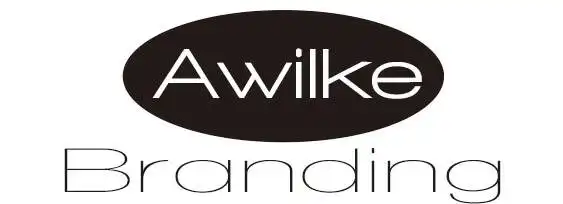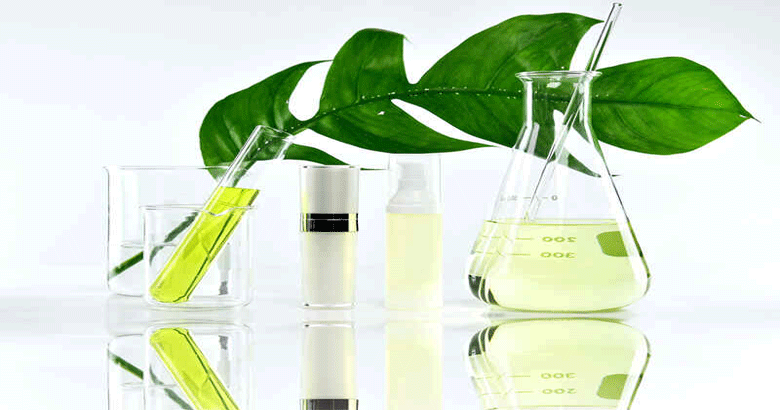
Hair care is one of the most crucial aspects of personal grooming and self-expression. Over the years, the hair care industry has undergone significant evolution. Consumer preferences, advancements in technology, and the growing awareness of product sustainability and personal health drive the hair care industry to constantly look for new ways to evolve. It’s no longer about aesthetics; it’s a reflection of changing lifestyles and values.
As a business, striving to meet these ever-changing consumer needs may be the driving force that could propel your business forward. Let’s delve into the newest trends in the hair care industry in 2025 that you can do with private labeling.
1. Joining the Clean Beauty Movement
Placing a clean beauty personality in your brand will help your hair care products attract customers seeking products free from harsh chemicals. Focusing on natural ingredients instead of chemicals will help your brand achieve the Clean Beauty standards.
So, What’s Clean Beauty?
Clean beauty refers to a type of personal care that emphasizes using safe, non-toxic, and environmentally friendly ingredients. The growing awareness of clean beauty is primarily driven by increasing concerns about health, the environment, transparency in product ingredients, the influence of wellness culture, and digital platforms spreading information and advocacy. As a business, joining the clean beauty movement will allow you to tap into new younger, well-informed, and health-conscious customers.
Here are the different types of hair-friendly natural ingredients you can use for your product:
✔️ Coconut Oil
Known for its moisturizing properties, coconut oil helps nourish and condition hair, leaving it soft, shiny, and manageable. It can penetrate the hair shaft to reduce protein loss and strengthen hair strands.
✔️ Argan Oil
Rich in antioxidants, vitamins, and fatty acids, argan oil is excellent for hydrating and adding shine to hair. It helps tame frizz, repair damage, and protect hair from heat and environmental stressors
✔️ Aloe Vera
A soothing and moisturizing ingredient, aloe vera promotes scalp health and helps balance pH levels. It hydrates hair without weighing it down and can also stimulate hair growth.
What is NOT Clean Beauty?
Non-clean beauty typically refers to products that contain synthetic or potentially harmful ingredients. These ingredients are often linked to various health concerns, such as skin irritation and hormonal disruption.
✔️ Sulfates
Common sulfates like sodium lauryl sulfate (SLS) and sodium laureth sulfate (SLES) are harsh surfactants that can strip hair of natural oils and cause scalp irritation.
✔️ Parabens
These are preservatives like methylparaben, propylparaben, and butylparaben that are linked to hormonal disruption and have potential health risks.
✔️ Phthalates
Often used to enhance fragrance in products, phthalates (such as diethyl phthalate or DEP) can disrupt hormones and have been associated with reproductive issues.
Additionally, here is an expanded table of clean beauty and non-clean beauty ingredients. Work with your private label partner to choose the right one for your business, and which one to avoid.
| Clean Beauty Ingredients | Description | Non-Clean Beauty Ingredients | Description |
| Coconut Oil | Moisturizing oil that nourishes hair and scalp | Sodium Lauryl Sulfate (SLS) | A harsh surfactant that can strip natural oils |
| Argan Oil | Rich in antioxidants; hydrates and adds shine | Parabens (e.g., methylparaben) | Preservatives linked to hormonal disruption |
| Aloe Vera | Soothing and moisturizing; supports scalp health | Synthetic Fragrances | Artificial scents often contain hidden chemicals |
| Shea Butter | Deeply moisturizes and improves hair elasticity | Phthalates (e.g., DEP) | Enhances fragrance but is linked to hormone disruption |
| Jojoba Oil | Balances scalp oil production; conditions hair | Formaldehyde-releasing preservatives | Used as preservatives; can cause skin irritation |
| Rosemary Extract | Stimulates hair growth; reduces scalp inflammation | Silicones | It provides temporary smoothness but can build up |
| Hemp Seed Oil | Rich in omega fatty acids; strengthens hair | Mineral Oil | Derived from petroleum; can clog pores |
| Natural Essential Oils | Provides aromatic benefits; adds natural fragrance | Artificial Colors | Synthetic dyes that may cause skin irritation |
| Green Tea Extract | Antioxidant-rich; promotes scalp health | Propylene Glycol | A humectant that can cause skin irritation |
| Almond Oil | Lightweight moisturizer; adds shine to hair | Triclosan | Antibacterial agent linked to environmental impact |
2. Meeting the Modern Eco Standards
As your business grows, embracing sustainability in your product offerings is more than just a trend—it’s a strategic imperative. Consumers are increasingly mindful of the environmental impact of their purchasing decisions, leading to a shift towards sustainable and eco-friendly products.
The standards for environmentally friendly products have evolved as we dive deeper into the modern era of hair care. Here are ways you can meet the modern eco-standards in your products:
In Your Packaging
When aiming for modern eco-standards in hair care packaging, consider using sustainable materials such as recyclable or biodegradable options. Materials you can opt for with your private labeling partner may include glass bottles or jars, which are recyclable and reusable, reducing single-use plastic waste.
You can also explore packaging made from post-consumer recycled materials or bioplastics derived from renewable sources like corn or sugarcane, which have a lower environmental impact compared to traditional petroleum-based plastics.
In Your Ingredients
You may choose ingredients that are non-toxic to aquatic life such as plant-derived surfactants (e.g., coconut-derived surfactants) and natural essential oils (e.g., lavender, tea tree). These ingredients are biodegradable and have minimal impact on aquatic ecosystems.
You may also opt for organic and ethically sourced ingredients like organic aloe vera gel, shea butter from fair-trade cooperatives, and sustainably harvested botanical extracts such as chamomile and calendula.
In Your Shelf Life
To enhance eco-standards in hair care products, you must optimize your formulations for stability and longevity while prioritizing sustainability and safety. Consider using naturally derived preservatives such as tocopherol (vitamin E), rosemary extract, or grapefruit seed extract, which can help extend shelf life without relying on synthetic chemicals.
Additionally, you could use antioxidant-rich ingredients like green tea extract, vitamin C, or argan oil. These can enhance the stability of your hair care brand by protecting your products against oxidative damage.
3. Focus on Scalp Health
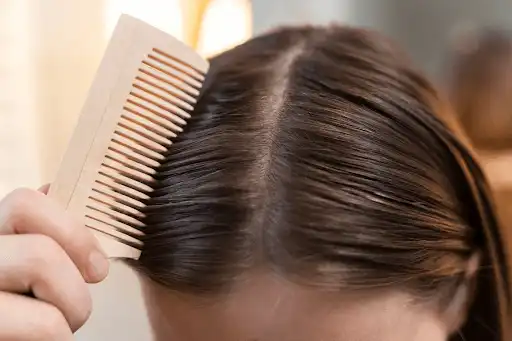
Hair care trends have evolved beyond simply focusing on the strands of hair. More and more, the industry is recognizing that scalp health plays a crucial role in achieving holistic hair care results. Products that prioritize scalp health can lead to healthier, stronger, and more vibrant hair overall.
Here’s why the focus on scalp health is becoming a prominent trend in the hair care industry:
Foundation for Hair Growth
The scalp is where hair follicles reside. A healthy scalp environment supports optimal hair growth by ensuring follicles receive necessary nutrients and oxygen. When the scalp is healthy, hair tends to grow longer and stronger.
Clean beauty ingredients such as aloe vera, coconut oil, argan oil, peppermint oil, rosemary extract, and biotin can support the scalp as a foundation for hair growth. These ingredients have nourishing, hydrating, and stimulating properties that promote scalp health, improve circulation, and provide essential nutrients to hair follicles.
Preventing Hair Issues
A healthy scalp helps prevent common hair issues such as dandruff, itching, and excessive oiliness. Ingredients such as tea tree oil, witch hazel, salicylic acid, apple cider vinegar, and neem extract are highly effective in dealing with common hair issues.
An Overall Approach to Hare Care
Treating the scalp as a priority aligns with the idea of holistic hair care. A healthy scalp nurtures healthy hair from the roots, promoting shine, volume, and manageability. This approach recognizes that addressing scalp health is fundamental to achieving beautiful and resilient hair.
4. Inclusive Hair Care

The landscape of hair care is incredibly diverse, with various demographics having unique hair care needs. As the industry evolves, inclusivity in hair care becomes important in meeting the demands of different hair textures, types, and cultural backgrounds.
Here are ways you can be diverse and inclusive in your hair care products:
Catering to Specific Allergies and Sensitivities
Work with your private labeling partner to ensure that your products are free from common allergens like gluten, nuts, dairy, and other specific fragrances. It would also help to know what you’re closest customers are allergic to, so you can adjust your business’s product offerings accordingly.
Tailoring Products for Different Hair Types
Different hair styles require their own type of hair care. For instance, customers with straight hair may require products that can make their mane shinier and more manageable without weighing it down. On the other hand, people with curly and kinky hair may require products that provide deep hydration, define curls, reduce frizz, and offer extra moisture to maintain their hair’s natural texture and bounce.
Work with your private labeling partner to provide the best range of hair care products for your business’s immediate customers.
Addressing Hair Illnesses and Scalp Conditions
Developing specialized products that target specific scalp conditions like dandruff, psoriasis, or dermatitis demonstrates inclusivity by addressing common hair-related illnesses. These products provide relief and support for individuals dealing with such conditions.
5. Trending Hair Care Products in 2025
The popularity of 3-in-1 shampoos is slowly losing its momentum. As people of all ages become more and more conscious of their hair health, they start to seek products specific to their tastes. Since the turn of 2020, we’ve seen the rise of the popularity of the following hair care products:
Trending Hair Care Products for Men
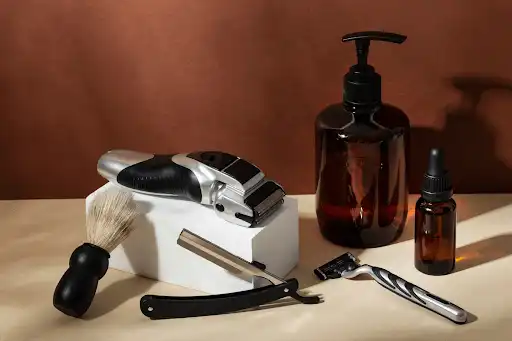
✔️ Casual Hair Wax
Casual hair waxes are ideal for creating relaxed, tousled looks without stiffness, and can be applied easily. They’re perfect for men who prefer to style their hair on the go, without the need for much preparation and clean-up.
✔️ Fragrance-Free Hair Care
These are hair care products formulated without added fragrances. These are mostly preferred by men who have sensitive skin or allergies, or who simply prefer their grooming products to be unscented for a more neutral feel.
✔️ Thickening Shampoos
Men prefer thickening shampoos for their ability to add volume and fullness to their hair. A greater hair volume could be preferred by men who wish to achieve a thicker or more robust hairstyle.
Trending Hair Care Products for Women
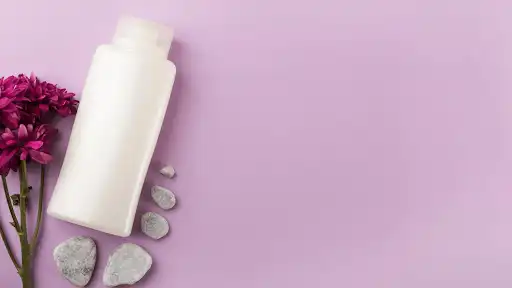
✔️ Bond Repair Shampoos
These shampoos are formulated to repair and strengthen damaged hair by rebuilding the bonds within the hair fibers. They help restore hair health and minimize breakage caused by chemical treatments, heat styling, or environmental damage.
✔️ Heat Protectant Sprays
Heat protectant sprays form a protective barrier on the hair shaft to shield it from the damaging effects of heat styling tools like flat irons, curling irons, and blow dryers.
✔️ Gloss and Shine Treatments
Gloss and shine treatments are designed to enhance hair’s natural shine and luster. These treatments can be in the form of serums, oils, or masks that provide hydration and smoothness while adding a glossy finish to the hair, leaving it looking healthy and radiant.
On the other hand, here are some classic hair care products that are expected to keep staying strong in the future:
✔️ Frizz-Control Products
These products are designed to tame and manage frizzy hair by smoothing the hair cuticle and reducing static and flyaways. They typically include serums, creams, or sprays that provide humidity resistance and promote smoother, more controlled hair.
✔️ Deep Moisturization
Deep moisturizing products like masks, conditioners, or treatments are essential for restoring hydration to dry and damaged hair. They penetrate deeply into the hair shaft to nourish and strengthen, leaving hair soft, smooth, and more manageable.
✔️ Volumizers
Volumizing products add body and lift to the hair, making it appear fuller and thicker. They come in various forms such as mousses, sprays, or powders, and work by lifting the roots and creating texture for a more voluminous hairstyle.
Conclusion
The hair care industry continues to evolve rapidly, driven by changing consumer preferences, technological advancements, and a growing focus on sustainability and wellness. The rapid and unending growth may be intimidating to some small hair care businesses such as parlors, barbershops, and spas. However, with the right strategy and a suitable private labeling partner, you can secure a solid place in your customers’ minds. Simply work with private labeling to keep the latest hair care trends in mind, ensuring that you provide the right range of products to your customers.
Looking to Get Into the Private Labeling Industry?
Having a private labeling partner for your hair care brand may just be the boost your business needs to prosper. When you partner up with private labelling, your business could experience the following benefits:
Access to a Wide Range of Products
Private labeling allows you to offer a diverse range of products without the need for extensive research and development. Your partner can provide ready-made formulations or customize products to meet your needs, whether you’re a hair care, skin care, or men’s grooming business.
Assistance with Market Insights
As prominent figures in the industry, private labeling partners who delve into hair care often have valuable market insights and industry expertise. They can provide market research, trend analysis, and customer behavior insights to help you make informed decisions and stay competitive in the hair care market.
Cost-Effective Production and Scalability
Working with a private labeling partner can help your business become more cost-effective and efficient. You can tap into their already established manufacturing capabilities and expertise to help increase your business’s inventory with less waiting time and overhead costs than in-house production.
To learn more, visit Awilke branding to further solidify your brand’s place in the hair care industry!


 How to Start Your Own Brand with the Trendy Ayurveda Ingredients
How to Start Your Own Brand with the Trendy Ayurveda Ingredients